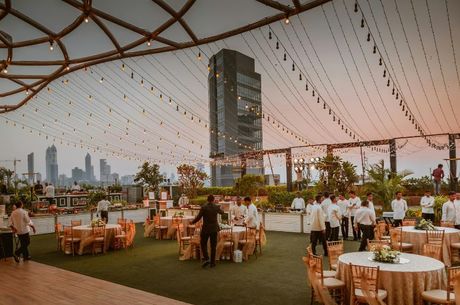2025 marked a turning point for venue planning.
While the last few years have been characterised by recovery and recalibration, 2025 was the first year that event venues operated with a new set of rules, not as temporary adaptations, but as the long-term norm.
Across global markets, a few clear themes emerged throughout the year. These forces have reshaped how venues attract business, manage operations, and deliver event experiences.
Planners shifted to experience-led venues, not just available ones
One of the most significant shifts this year was the diversification of venue types that planners considered.
The IACC Meeting Room of the Future 2025 report found 51% of planners explored specialty or alternative venues, from stadiums and sporting arenas to vineyards and destination-based conference centres, up from 33% previously.
This rise signals a broader redefinition of what “event space” means:
- Events increasingly serve as brand storytelling moments
- Attendees expect novelty, immersion, and identity alignment
- Planners prioritise venues that elevate a sense of place
Traditional venues have responded in two ways:
- Investing in experiential elements (from design to F&B), and
- Improving operational agility, allowing them to compete with highly flexible, non-traditional spaces.
F&B became more than an operational line item
Food and beverage took on greater importance this year. Planners rated F&B at 9.0/10 in importance, up from 7.9 in 2023.
This shift runs beyond menu quality into deeper trends:
- Catering as cultural expression
- Sustainability expectations around sourcing and waste
- The rise of interactive or “experience-first” dining moments
- Heightened attention to dietary inclusivity and personalisation
For event venues, this evolution has operational consequences. As menus became story-driven and attendee-centric, precision, communication, and real-time coordination became essential to avoid misalignment across sales, kitchen, and service teams.
Short lead times and unpredictable RSVPs became the standard
If 2024 signalled volatility, 2025 normalised it.
Venue teams across markets reported:
- More late enquiries
- More last-minute confirmations
- Higher volumes of changes after contracts were signed
- Unpredictable attendance fluctuations
This required venues to rethink workflow assumptions that had been held for decades. Static planning cycles gave way to continuous, adaptive decision-making, supported by real-time visibility and cross-department coordination.
Workforce strain continued, but response matured
The 2025 Moore Kingston Smith Hospitality report highlighted the ongoing reality facing hospitality and event venues: teams were still asked to “do more with less,” carrying heavier workloads amid persistent labour shortages and tighter budgets.
What changed in 2025 was the response: A shift from temporary solutions to long-term workforce strategy.
Operators increasingly recognised that:
- Staff engagement isn’t optional
- Mental load and administrative burden drive turnover
- Training and knowledge-sharing must be continuous, not episodic
- Operational support tools are now part of workforce wellbeing
The report highlights a growing industry maturity and a growing belief that creativity, compassion, and culture are strategic necessities for stability and growth.
My take on the venues and events industry in 2025
Perhaps the most important shift this year was psychological. This year marked the point where the industry stopped waiting for stability and instead began building for elasticity:
- Elastic staffing
- Elastic event formats
- Elastic planning cycles
- Elastic guest expectations
Venues that adopt this mindset open the doors to reduced operational stress and increased strategic clarity, as they no longer need to measure success by “returning to normal,” but rather by responding to what’s happening now.
As 2025 closes, several questions will shape event venue operations in the year ahead:
- How do we design venues to support increasingly dynamic event formats?
- How can F&B continue evolving as a core brand and attendee experience driver?
- How can operational teams stay healthy, supported, and motivated under persistent pressure?
- What role will automation and real-time insight play in helping venues stabilise revenue in uncertain cycles?
One thing is clear: 2025 was the start of a new operating era for event venues.
The venues entering 2026 strongest will be those who built flexible processes, empowered their teams, and embraced the idea that resilience isn’t just surviving volatility, it’s redesigning around it.
About iVvy
Established in 2015 on Australia’s Gold Coast, iVvy expanded globally with a head office in Australia and regional offices in the US, the UK, South Africa, and Vietnam. IVvy’s Sales & Catering software is helping the hospitality industry turn inquiries into confirmed bookings faster, enabling them to deliver a better attendee experience across 18 countries.
To learn more about iVvy and our product suite, visit ivvy.com
Brittany George
Content Marketing Manager
iVvy


